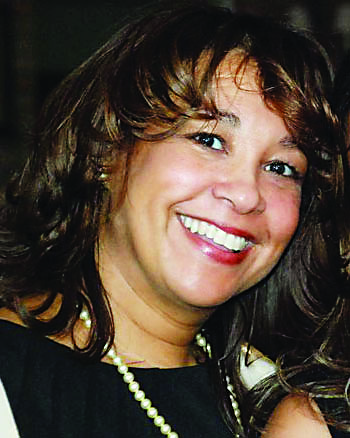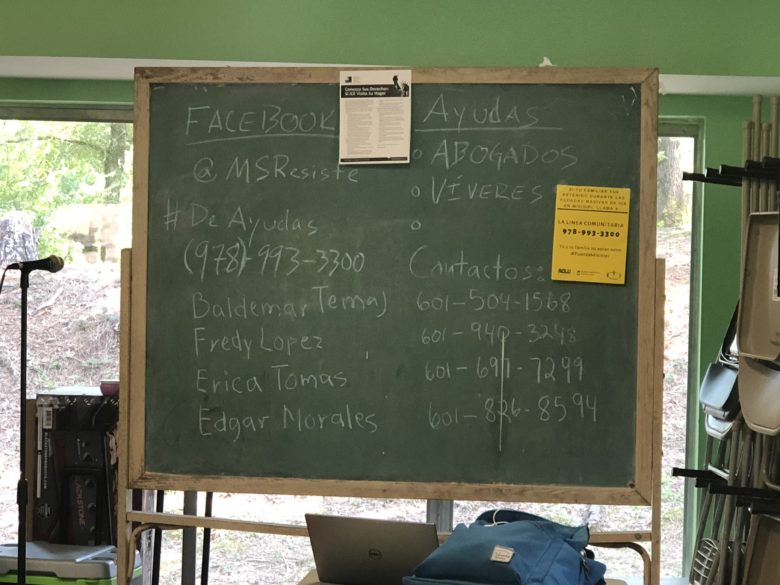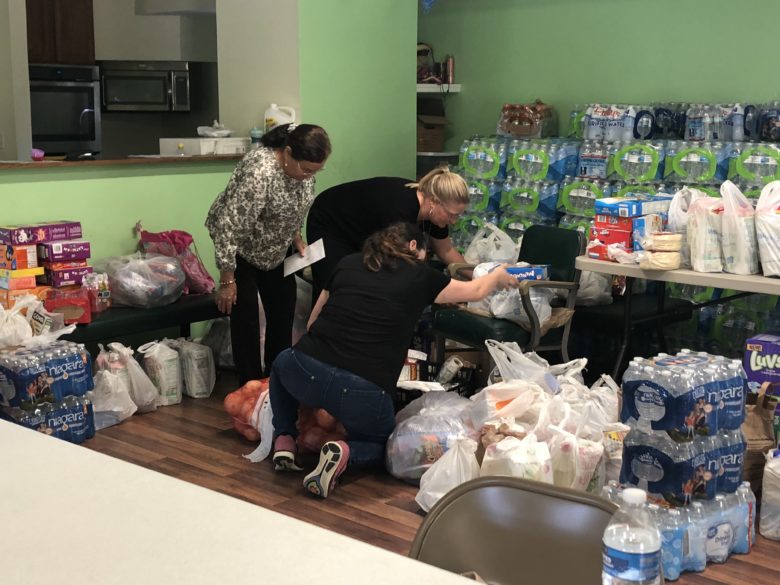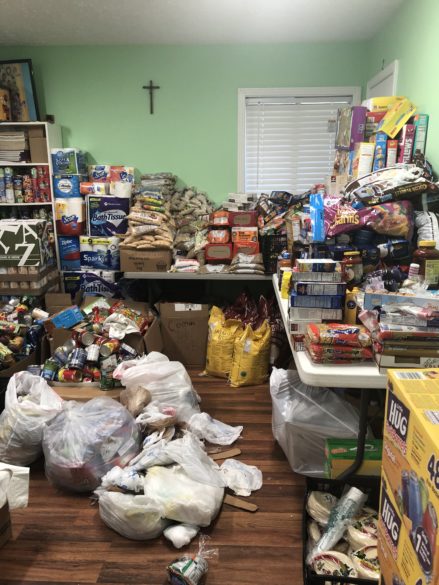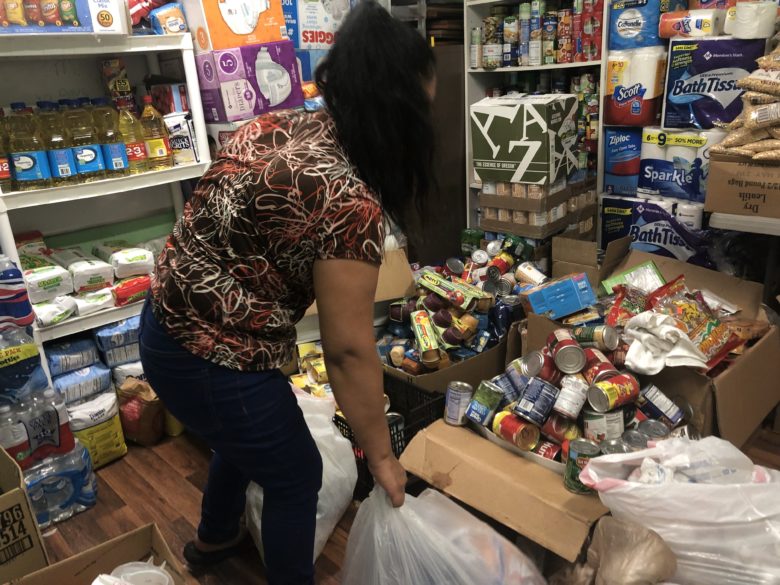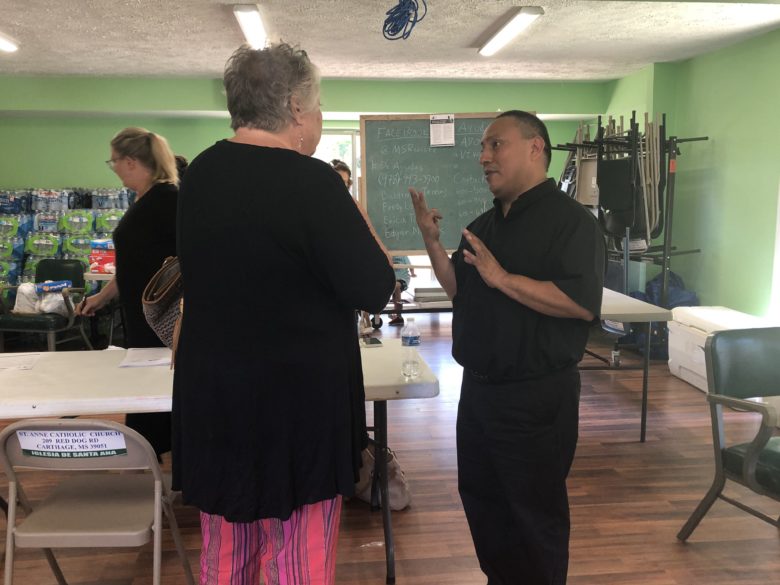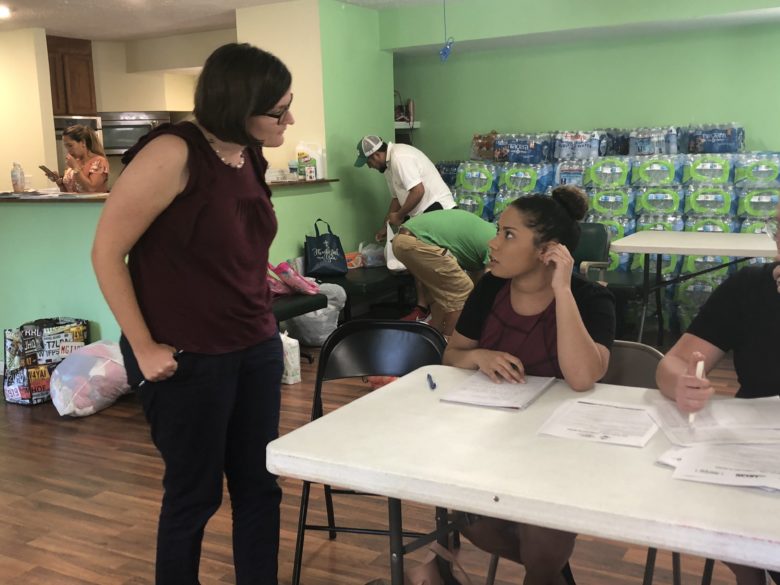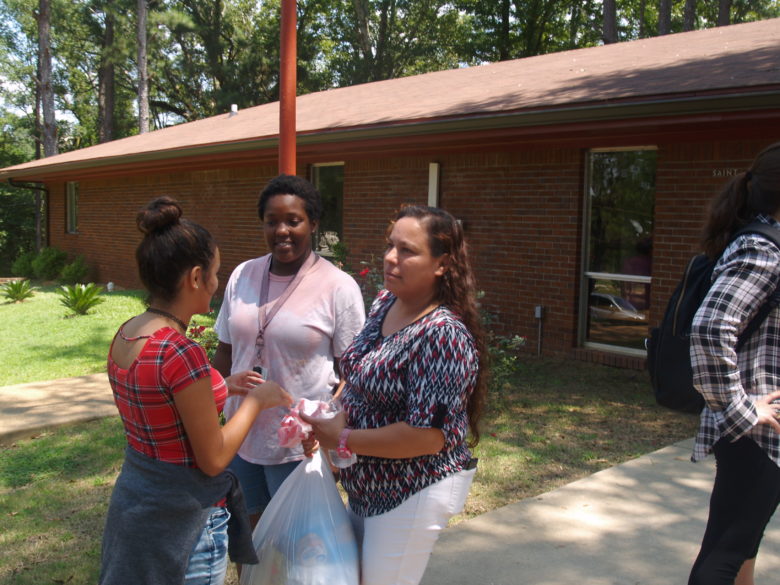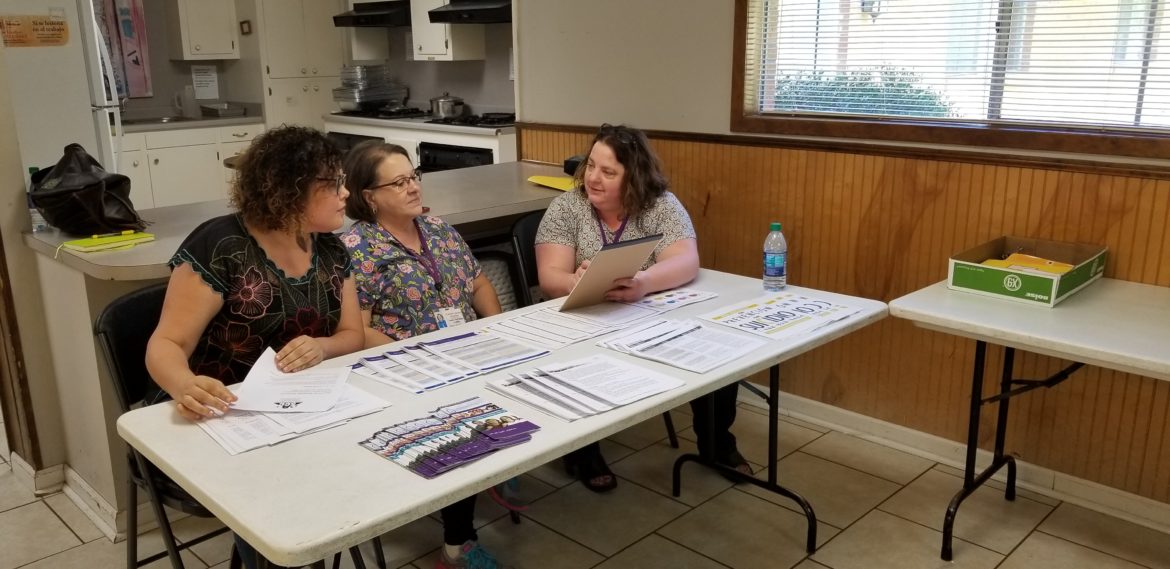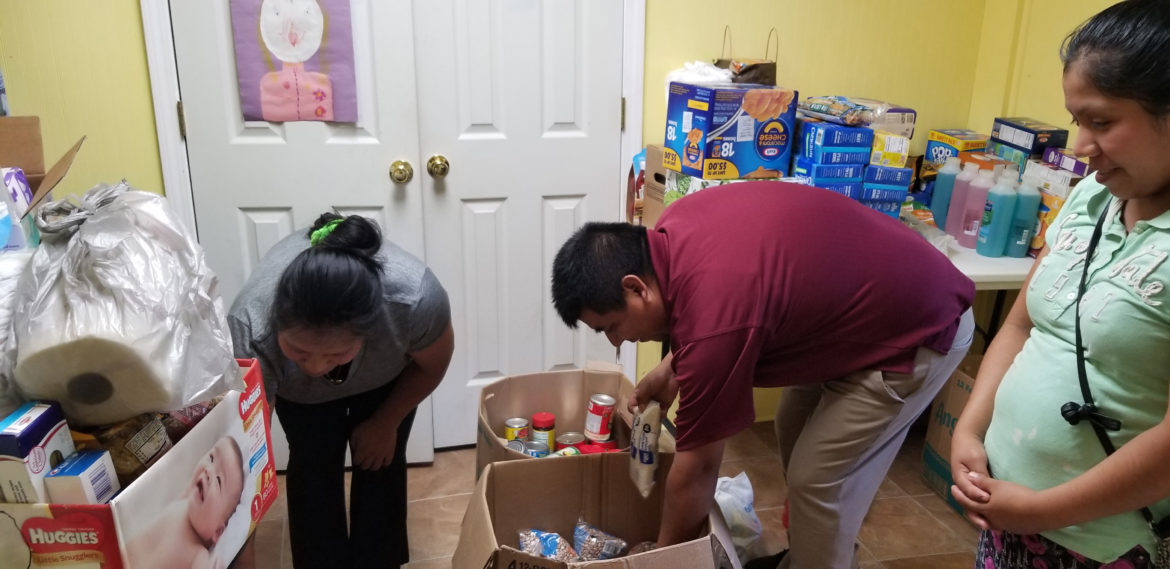
Por Obispo Joseph Kopacz
Una gran cantidad de personas en Misisipi continúan siendo afectadas por las recientes redadas, del Servicio de Inmigración y Control de Aduanas (ICE), a indocumentados en comunidades y lugares de trabajo en todo el centro de nuestro estado. Las familias directamente afectadas están luchando para abordar las necesidades inmediatas mientras se preguntan sobre lo que seguirá en las próximas semanas y meses.
Por otro lado, la respuesta de base a la crisis ha sido rápida y de gran alcance. Dos días después de su instalación, personas de 40 estados hicieron donaciones en la página web de Catholic Charities dedicada a los afectados por las redadas. Estas donaciones se contabilizaron rápidamente y se prepararon para su distribución de acuerdo con las solicitudes que inevitablemente vendrán de las familias en las cuales los proveedores están ausentes.
Esta respuesta masiva, en todo el estado y en todo el país, demuestra la generosidad del pueblo estadounidense, en nombre de los niños y las familias en crisis, debido a desastres naturales o provocados por el hombre. También indica que muchos estadounidenses están preocupados por nuestro quebrado sistema de inmigración y desean una solución justa y humana.
Todos los ciudadanos honorables saben que el respeto a la ley es una herramienta indispensable de una sociedad civilizada. Las leyes de nuestra nación son el fruto de casi 250 años de lucha por una sociedad más justa para todos.
En el caso de la inmigración en nuestras fronteras del sur, el estado de derecho está, regularmente, en desacuerdo consigo mismo y la resolución parece estar en un horizonte de constante retroceso. Esto es evidente por el conflicto entre las leyes de asilo, entrada legal a nuestro país y de ciudadanía por derecho de nacimiento. Esto no se resolverá fácilmente porque ha estado en un punto muerto, durante tres décadas y media, desde que Ronald Reagan concedió la amnistía en la década de 1980. Pero somos estadounidenses y el optimismo está alojado en nuestro ADN. Además, somos cristianos junto con personas de diversas tradiciones religiosas, y la esperanza es eterna.
Otro instrumento indispensable de una sociedad civilizada, que hace posible perseguir nuestros derechos inalienables, es la seguridad y la protección que las fuerzas del orden público brindan a nivel local, estatal y nacional. En nuestra nación, en la mayoría de los lugares, reina la ley y el orden debido a las fuerzas del orden y a una ciudadanía honorable. Con razón, el abuso de poder y la corrupción, dentro de la aplicación de la ley, siempre debe ser expuesto a la luz en todas las organizaciones, incluida la iglesia.
Por esto, el respeto es crucial, por aquellos que sirven en la aplicación de la ley, porque el caos sería inimaginable sin su presencia en nuestras comunidades y nación.
Entonces, gracias a los hombres y mujeres, que sirven a la ciudadanía a través de su vigilancia sobre nuestras largas costas y fronteras, por la preservación activa, en nombre de la ley y el orden, en innumerables comunidades en todo el país.
Otro instrumento vital de una sociedad civilizada es la salvaguarda de la libertad religiosa que nuestros fundadores apreciaron tanto, al punto que se consagró en la primera enmienda de la constitución. “El Congreso no hará ley alguna por la que adopte una religión como oficial del Estado o se prohíba practicarla libremente, …, o el derecho del pueblo para reunirse pacíficamente …” La sabiduría expresada en la Primera Enmienda prevé una asociación entre el gobierno y la religión en nombre del bien común o el bienestar general.
En este espíritu, en el Edificio Federal en Jackson el martes 13 de agosto, el Departamento de Seguridad Nacional, (Department of Homeland Security -DHS-, por su nombre y siglas en inglés), patrocinó un foro abierto del Subcomité para la Prevención de la Violencia Dirigida contra Comunidades Religiosas.
El siguiente es el memorándum que, Kevin K. McAleeman, Secretario Interino del Departamento de Seguridad Nacional, emitió el 20 de mayo; “En vista de los recientes ataques contra sinagogas, iglesias, templos y mezquitas, solicito que se restablezca rápidamente un Subcomité bajo el nombre de Concejo Asesor de Seguridad Nacional (HSAC) centrado en la seguridad de las organizaciones religiosas de todo el país.
Las casas de culto y las organizaciones sin fines de lucro basadas en la fe dedican recursos a las comunidades locales y, a menudo, sirven como faros sociales y morales en los que las personas confían en tiempos de problemas.
El derecho a practicar nuestras respectivas religiones, sin interferencia o miedo, es uno de los derechos más fundamentales e indelebles de nuestra nación. Por lo tanto, el ataque de extremistas violentos de cualquier ideología es particularmente aborrecible y debe evitarse. Si bien el Departamento de Justicia es responsable de investigar y procesar los ataques contra las instituciones religiosas, las misiones del DHS incluyen la preparación, prevención y mitigación de tales ataques. En apoyo de estas misiones, el DHS proporciona información, capacitación, ejercicios y experiencia sobre medidas de seguridad de protección a organizaciones religiosas “.
La preocupación por la violencia contra las comunidades religiosas no es una postura política en este momento en la historia de nuestra nación. El fin de semana pasado, el FBI y otros colegas encargados de hacer cumplir la ley evitaron un ataque contra un Centro Comunitario Judío en Youngstown, Ohio, a una hora al oeste de los asesinatos en la sinagoga en Pittsburg. Como es el caso en el 80% de tales amenazas y tiroteos masivos, el terrorista de cosecha propia, si sus planes no hubieran sido frustrados, habría sido un joven blanco supremacista. Parece que tenemos un cáncer creciente en el tejido social de nuestra nación y las comunidades basadas en la fe se encuentran en la mira de este odio imprudente.
Estuve agradecido de ser parte del panel de líderes religiosos, que estuvieron presentes en el foro, con funcionarios electos a nivel nacional y estatal, junto a representantes de fuerzas del orden de Natchez, Vicksburg y Jackson. Fue informativo e inspirador escuchar sobre las preocupaciones y esperanzas de los oradores y las preguntas de los panelistas que trataron de refinar la discusión en espera del eventual informe que será publicado por DHS el próximo mes. Sin lugar a duda, necesitamos construir puentes en nuestra sociedad para el bien de todos, donde gobierno y las comunidades religiosas sean socios efectivos para abordar los problemas apremiantes de nuestro tiempo.
Como se indicó anteriormente, “las casas de culto y las organizaciones sin fines de lucro, basadas en la fe, dedican recursos a las comunidades locales y, a menudo, sirven como los faros sociales y morales en los que las personas confían en tiempos de problemas”.
Como comunidades de fe católica, a través de la Diócesis de Jackson, en estrecha colaboración con nuestras Caridades Católicas, estamos orgullosos de ser un faro social y moral para muchos, en tiempos ordinarios y en tiempos de crisis tras las redadas.
El colapso en el tejido social de nuestra nación sería inimaginable sin la presencia, a través de toda nuestra nación, de comunidades e individuos basados en la fe. Construyamos y reconstruyamos juntos sobre la base de las fortalezas de nuestra nación.




